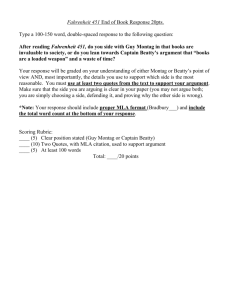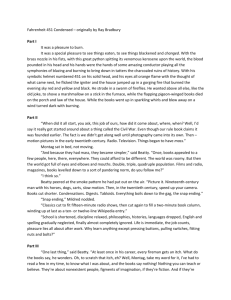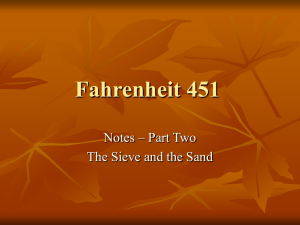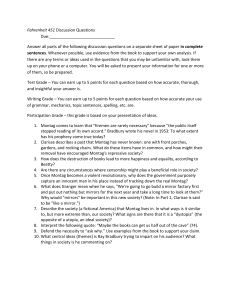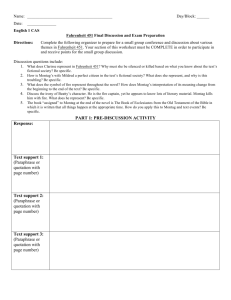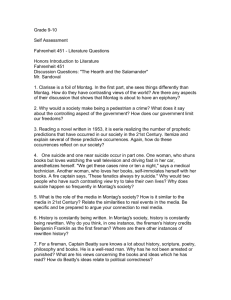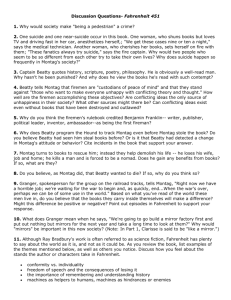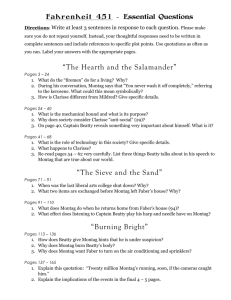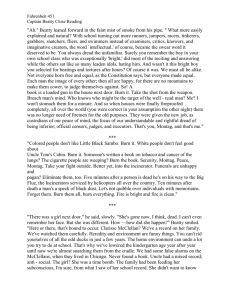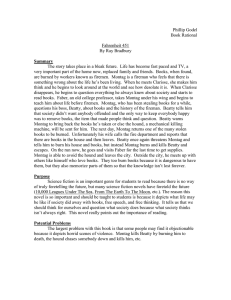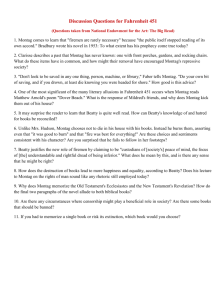Fahrenheit 451 Part II Vocab
advertisement
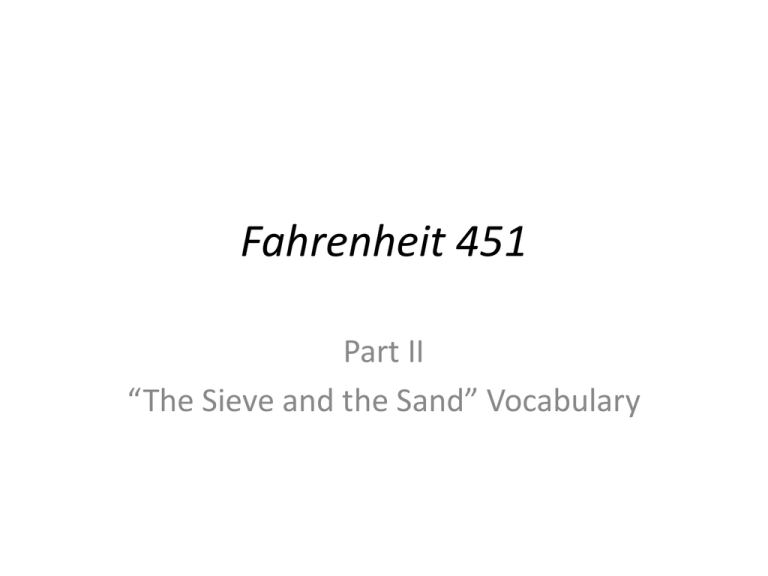
Fahrenheit 451 Part II “The Sieve and the Sand” Vocabulary Harlequin Buffoon, comic, clown cadenced With a rhythmic flow of a sequence of sounds or words patronage Financial support or assistance Aesthetic Relating to beauty teem Abound or swarm; be plentiful intuitively Seemingly; reasonably; most likely praetorian Related to elected magistrates charged chiefly with the administration of civil justice insidious Artful; clever; crafty sieve An instrument with a meshed bottom used for separating coarse from fine parts of loose matter or for straining liquids trifle Article or thing of very little value oblivion The state of being forgotten welter Clamor; commotion falter To be unsteady; to stumble Linguists Persons who are skilled in several languages arsonists Persons who willfully set fire to buildings, or other property, for an improper use Contemptible Shameful; despicable; disgusting Suffused Was spread through or over, as with liquid, color, or light Quotes from Part I Censorship “The home environment can undo a lot you try to do at school. That’s why we’ve lowered the kindergarten age year after year until now we’re almost snatching them from the cradle” (64). Beatty is explaining how the government keeps what kids learn at home in check by censoring what they learn in school. Knowledge vs. Ignorance “And if there is something here, just one little thing out of a whole mess of things, maybe we can pass it on to someone else” Literature and Writing "Come on, woman!" The woman knelt among the books, touching the drenched leather and cardboard, reading the gilt titles with her fingers while her eyes accused Montag. "You can't ever have my books," she said. (1.346-8) This woman recognizes what Montag will not realize for some time – the value of books is not physical and doesn’t lie in the tangible pages. That’s why, although they burn this woman’s books, they never really take them from her. Technology and Modernization • "Will you turn the parlour off?" he asked. "That's my family." As a term of any meaning and significance, "family" has gone by the wayside in this world. Montag has already admitted that he might not cry if his wife died. By this definition of family – as a relationship without emotion or love – the TV characters actually do fit the bill. Rules and Order • “We must all be alike. Not everyone born free and equal, as the Constitution says, but everyone made equal. Each man the image of every other; then all are happy” Beatty cites many different reasons for the abolishment of books, but this one is perhaps the most terrifying. Fear and jealousy imagine intellectualism as a weapon. Bradbury reminds us that those who can not fight with words or ideas use violence as a substitute.
